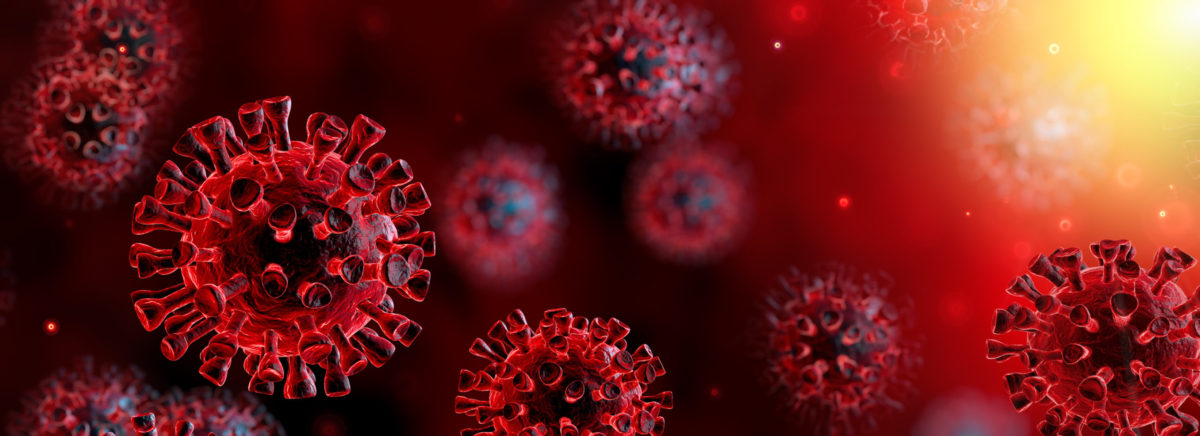Keep protecting yourself, others from COVID-19
More than three years ago, the World Health Organization (WHO) officially declared COVID-19 a worldwide pandemic, defined as “a disease outbreak that spreads across countries or continents.”
More than a year has passed since an outbreak of a new COVID-19 variant emerged. Therefore, many infectious disease experts are declaring a shift in the public health crisis from pandemic to endemic, meaning “the virus and its patterns are predictable and steady in designated regions,” according to WebMD.
It is important to know that, while COVID-19 infection rates may have tapered off, COVID-19 is not going away. The virus still poses a threat of serious illness or death, especially to older adults and people who are immunocompromised. As of mid-May, there were 9,187 new weekly COVID-related hospitalizations in Pennsylvania, according to the U.S. Centers for Disease Control & Prevention (CDC).
This article provides useful information about protecting yourself – and others – from COVID-19, from the CDC.
By now, hopefully, you’ve taken steps to lower your risk of being infected by or becoming seriously ill from COVID-19. The CDC’s “Personal COVID-19 Plan” provides tools, information and action steps to help keep you protected.
Know your risk
If you haven’t done so already, talk with your doctor about whether you are at high risk of getting very sick from COVID-19. People who are more likely to get very sick include adults 50 or older (risk increases with age); people who are not vaccinated; and people with certain chronic health conditions, including chronic lung disease, heart disease or a weakened immune system.
Prevention
Vaccination is the best way to reduce the risk of contracting COVID-19. And, if you do get COVID-19, vaccination will greatly lower your risk of developing severe illness or dying. COVID-19 vaccines are safe and effective, according to health officials, including the CDC and Philadelphia Department of Public Health. For the best protection, everyone 6 months and older is recommended to be vaccinated and to stay up to date with their COVID-19 vaccines, which includes getting boosters.
To locate a COVID-19 vaccination site near you, call 1-800-232-0233, text your ZIP code to 438829 or visit vaccines.gov.
Watch for symptoms
The symptoms of COVID-19 can include the following:
- Fever or chills
- Cough
- Shortness of breath or difficulty breathing
- Fatigue
- Muscle or body aches
- Headache
- New loss of taste or smell
- Sore throat
- Congestion or runny nose
- Nausea or vomiting
- Diarrhea
Emergency warning signs:
- Trouble breathing
- Persistent chest pain or pressure
- New confusion
- Difficulty waking or staying awake
- Pale, gray or blue-colored skin, lips or nail beds
Get tested
Keep a supply of COVID-19 self-test kits at home and learn how to use them. If you have symptoms of COVID-19, test immediately (within 24 hours or as soon as possible).
It is not possible to tell the difference between certain contagious respiratory illnesses – COVID-19, the flu (influenza and RSV (Respiratory Syncytial Virus) – based on symptoms alone. Therefore, it is recommended that you contact your health care provider to discuss your symptoms and testing options, especially if you are at higher risk of developing severe illness.
If you test positive for COVID-19:
- Isolate at home for at least five days.
- Call people you had recent contact with to let them know they may have been exposed.
- Wear a high-quality mask for 10 full days, whenever around others at home or in public.
- Call your health care provider immediately to discuss your treatment options. People with risk factors for severe disease may benefit from antiviral medication.
- Monitor your symptoms. Contact your health care provider or call 9-1-1 if emergency warning signs appear.
COVID-19 reinfection
Reinfections are common from many respiratory viruses, including SARS-CoV-2, the virus that causes COVID-19. Cases of “reinfection,” when a person was infected, recovered and later became infected again, are most often mild. However, severe illness can occur, and people who are reinfected can also spread the virus to others. Staying up to date with vaccines and starting treatment within days after developing symptoms can decrease an infected person’s risk of experiencing severe illness from COVID-19.
After infection, people’s immune systems respond to protect them from the virus by creating antibodies. This immune response can provide a high level of protection against infection with COVID-19 and its variants for several months, but this protection decreases over time. People with weakened immune systems, such as those with chronic health conditions and older adults, may have limited or no immune response after infection.
Most reinfections occur after 90 days of a previous infection. As the virus continues to evolve, new variants with the ability to avoid a person’s existing immunity can appear and lead to an increased risk for reinfection.
For the latest news and guidance about COVID-19, go to phila.gov/COVID or call 215-685-5488.
Alicia Colombo is editor and publication manager at Philadelphia Corporation for Aging.




